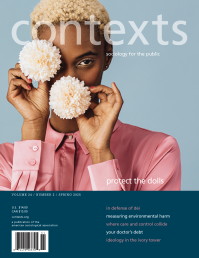Responses to Affirmative Action
Affirmative action, a remedy policy for past racial discrimination, is a highly controversial political issue in the United States. Those who support affirmative action see it as supporting racial justice. Those who oppose the policy see it as an obstruction to developing a color-blind society in which success is not predicted by race. In Social Problems, J. Scott Carter, Cameron Lippard, and Andrew F. Baird use critical discourse analysis to examine how color-blind and “group threat” frames of communication are used in support and opposition to affirmative action cases.
The authors analyzed 184 amicus briefs submitted in response to the Supreme Court’s high-profile Fisher v. The University of Texas at Austin affirmative action case. Amicus briefs are an ideal data source because they usually focus on the societal level implications of a case. The author’s analysis examined how the amicus brief authors employed sociologist Eduardo Bonilla-Silva’s four frames of color-blind rhetoric. Their analysis also considered what role group threat played in these frames of communication and how such threat related to color-blind frames.
The authors found that both supporting and opposing briefs relied heavily on color-blind, abstract liberal arguments. They ignored racism and discrimination by making vague appeals to political and economic liberal ideas such as individualism and equal opportunity. In the course of these arguments, authors of the amicus briefs used and conceptualized threat differently. Supporters argued that discontinuing affirmative action policies would threaten universities and underrepresented minorities. Opponents described the continuance of affirmative action as a threat to White access to resources, American values, and society as a whole. Based on these findings, Carter, Lippard, and Baird argue that authors of the amicus briefs intertwine threat frames with color-blind rhetoric in order to stoke racial animosity and delegitimize affirmative action. This was particularly true for those opposing affirmative action. They recommend future research investigate how these frames of communication may be used to persuade action against other ameliorative racial policies.
